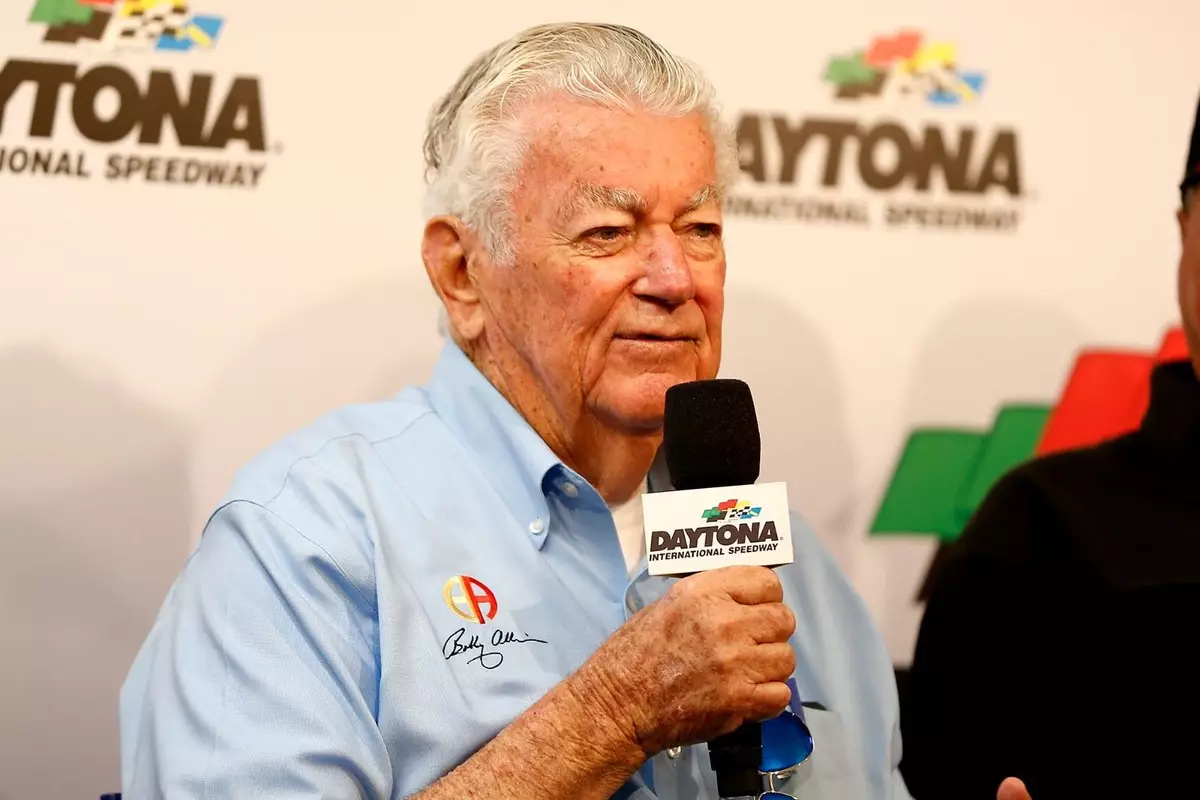In a moment that defies the sands of time, NASCAR icon Bobby Allison has finally been recognized for a win that took place over five decades ago, bringing to the forefront a long-standing controversy within the sport. On August 6, 1971, the NASCAR Cup Series held a race at Bowman Gray Stadium where Allison piloted a Grand American Ford Mustang, ultimately triumphing over some of the sport’s most renowned talents, including Richard Petty. He led an impressive 138 of the 200 laps, only to find himself wrapped in an extraordinary dilemma—this victory was never officially acknowledged, due to the classification of the vehicle he drove that day.
Allison’s situation sheds light on a complex aspect of NASCAR’s racing rules. The 1971 race was a mix of two different classes, with both Cup cars and the smaller Grand American models competing together. While this diversity was designed to be entertaining and went toward expanding the appeal of the sport, it also led to the baffling decision of classifying Allison’s performance as non-Cup, consequently erasing his monumental victory from the record books. This points to a critical flaw in the classification system, where the specifications of a vehicle overshadowed a driver’s undeniable skill and performance on the track.
Allison’s persistent advocacy for his legacy speaks volumes about his character. For years, he maintained that he deserved a spot among the elite ranks of NASCAR champions with 85 wins rather than the clouded 84 attributed to him. The emotional weight behind his assertion is significant, especially when considering the competitive history of NASCAR. Acknowledging this win would not only elevate Allison’s status, breaking a tie with Hall of Famer Darrell Waltrip, but it also revitalizes conversation regarding the legacies of drivers and how history recognizes them.
At 86, Bobby Allison’s still-active presence in the sport contrasts sharply with the very nature of NASCAR, where records and achievements should logically reflect the multitude of experiences that drivers endure. His induction into the NASCAR Hall of Fame in 2011 speaks to his profound impact on the sport, yet the breath of fresh air in finally declaring him as a winner from that fateful race showcases that recognition can come late but still hold reverberating significance. Furthermore, Allison’s achievement resonates more deeply today as Bowman Gray Stadium gears up to return to NASCAR’s Cup schedule in 2025, giving fans another chance to honor not just the race itself, but its implications on NASCAR’s narrative.
As we reflect on Bobby Allison’s lingering journey towards recognition, it’s clear that his story transcends the details of one race. It reminds us of the importance of fairness and due acknowledgment in all sports. With his recent win formally recognized, he stands alone in fourth place in NASCAR’s all-time victory rankings, showcasing that while the wheels of history may turn slowly, they ultimately reward tenacity and excellence in the world of racing. This overdue recognition isn’t just a personal victory for Allison; it’s a reminder to the sport of the enduring legacy of its greatest competitors.


Leave a Reply